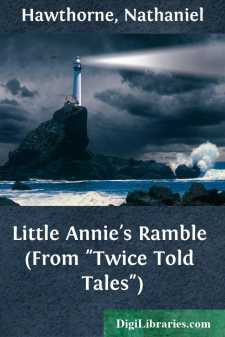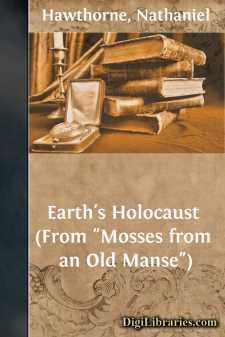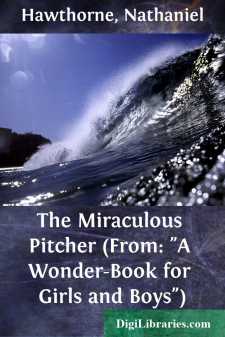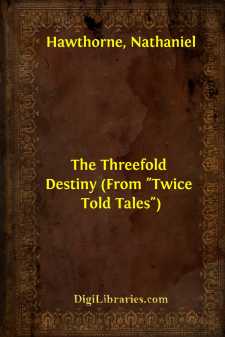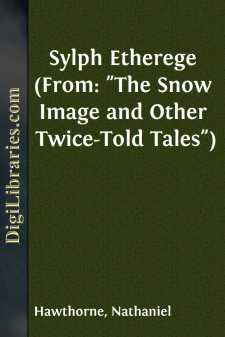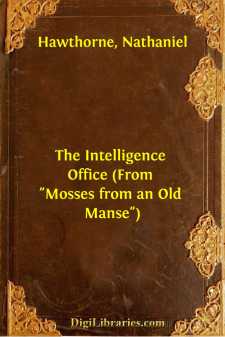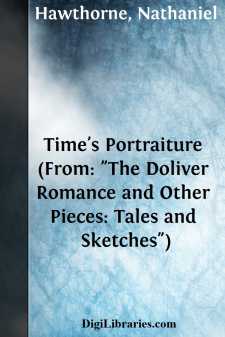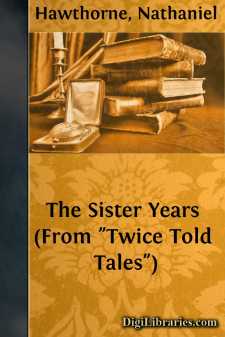Categories
- Antiques & Collectibles 13
- Architecture 36
- Art 48
- Bibles 22
- Biography & Autobiography 815
- Body, Mind & Spirit 144
- Business & Economics 28
- Children's Books 18
- Children's Fiction 14
- Computers 4
- Cooking 94
- Crafts & Hobbies 4
- Drama 346
- Education 58
- Family & Relationships 59
- Fiction 11835
- Games 19
- Gardening 17
- Health & Fitness 34
- History 1378
- House & Home 1
- Humor 147
- Juvenile Fiction 1873
- Juvenile Nonfiction 202
- Language Arts & Disciplines 89
- Law 16
- Literary Collections 686
- Literary Criticism 179
- Mathematics 13
- Medical 41
- Music 40
- Nature 180
- Non-Classifiable 1768
- Performing Arts 7
- Periodicals 1453
- Philosophy 65
- Photography 2
- Poetry 896
- Political Science 203
- Psychology 44
- Reference 154
- Religion 515
- Science 126
- Self-Help 85
- Social Science 83
- Sports & Recreation 34
- Study Aids 3
- Technology & Engineering 59
- Transportation 23
- Travel 463
- True Crime 29
Nathaniel Hawthorne
Nathaniel Hawthorne was a prominent American novelist and short story writer of the 19th century, known for his exploration of themes such as sin, guilt, and moral complexity. His most famous works include "The Scarlet Letter" and "The House of the Seven Gables," which are quintessential examples of dark romanticism. Hawthorne's writing often delves into the Puritanical history of New England, reflecting on the human condition and societal norms.
Author's Books:
Sort by:
DING-DONG! Ding-dong! Ding-dong! The town crier has rung his bell, at a distant corner, and little Annie stands on her father's doorsteps, trying to hear what the man with the loud voice is talking about. Let me listen too. O, he is telling the people that an elephant, and a lion, and a royal tiger, and a horse with horns, and other strange beasts from foreign countries, have come to town, and...
more...
Once upon a timeâbut whether in the time past or time to come is a matter of little or no momentâthis wide world had become so overburdened with an accumulation of worn-out trumpery, that the inhabitants determined to rid themselves of it by a general bonfire. The site fixed upon at the representation of the insurance companies, and as being as central a spot as any other on the globe, was...
more...
INTRODUCTORY TO "THE MIRACULOUS PITCHER" And when, and where, do you think we find the children next? No longer in the winter-time, but in the merry month of May. No longer in Tanglewood play-room, or at Tanglewood fireside, but more than half-way up a monstrous hill, or a mountain, as perhaps it would be better pleased to have us call it. They had set out from home with the mighty purpose of...
more...
I have sometimes produced a singular and not unpleasing effect, so far as my own mind was concerned, by imagining a train of incidents, in which the spirit and mechanism of the fairy legend should be combined with the characters and manners of familiar life. In the little tale which follows, a subdued tinge of the wild and wonderful is thrown over a sketch of New England personages and scenery, yet, it...
more...
Methinks, for a person whose instinct bids him rather to pore over the current of life, than to plunge into its tumultuous waves, no undesirable retreat were a toll-house beside some thronged thoroughfare of the land. In youth, perhaps, it is good for the observer to run about the earth, to leave the track of his footsteps far and wide,âto mingle himself with the action of numberless...
more...
On a bright summer evening, two persons stood among the shrubbery of a garden, stealthily watching a young girl, who sat in the window seat of a neighboring mansion. One of these unseen observers, a gentleman, was youthful, and had an air of high breeding and refinement, and a face marked with intellect, though otherwise of unprepossessing aspect. His features wore even an ominous, though somewhat...
more...
Grave figure, with a pair of mysterious spectacles on his nose and a pen behind his ear, was seated at a desk in the corner of a metropolitan office. The apartment was fitted up with a counter, and furnished with an oaken cabinet and a Chair or two, in simple and business-like style. Around the walls were stuck advertisements of articles lost, or articles wanted, or articles to be disposed of; in one...
more...
Kind Patrons:â-We newspaper carriers are Time's errand-boys; and all the year round, the old gentleman sends us from one of your doors to another, to let you know what he is talking about and what he is doing. We are a strange set of urchins; for, punctually on New Year's morning, one and all of us are seized with a fit of rhyme, and break forth in such hideous strains, that it would be...
more...
Last night, between eleven and twelve o'clock, when the Old Year was leaving her final foot prints on the borders of Time's empire, she found herself in possession of a few spare moments, and sat downâof all places in the worldâon the steps of our new City Hall. The wintry moonlight showed that she looked weary of body, and sad of heart, like many another wayfarer of earth. Her...
more...
Come! another log upon the hearth. True, our little parlor is comfortable, especially here, where the old man sits in his old arm-chair; but on Thanksgiving night the blaze should dance high up the chimney, and send a shower of sparks into the outer darkness. Toss on an armful of those dry oak chips, the last relics of the Mermaid's knee-timbers, the bones of your namesake, Susan. Higher yet, and...
more...


